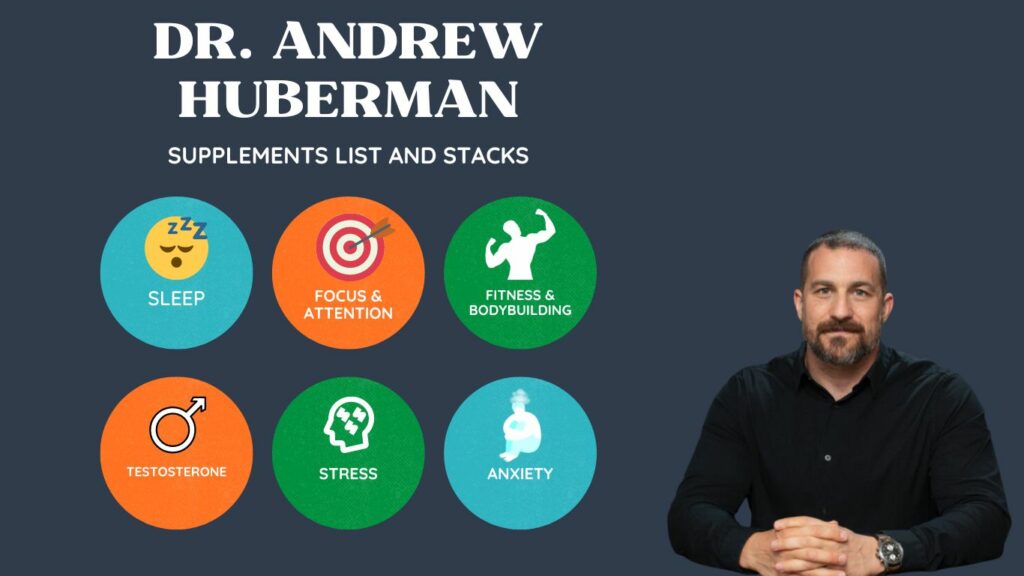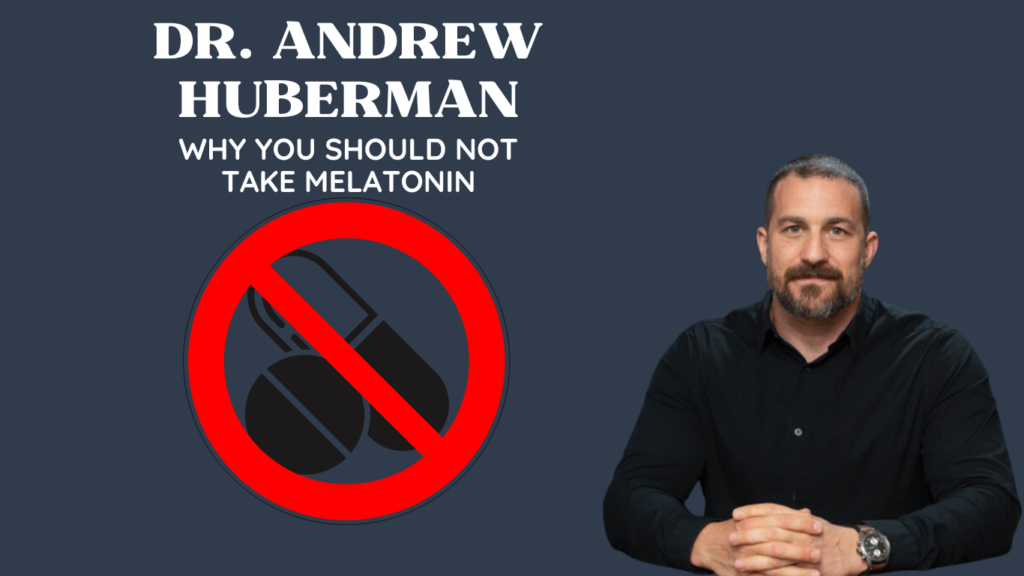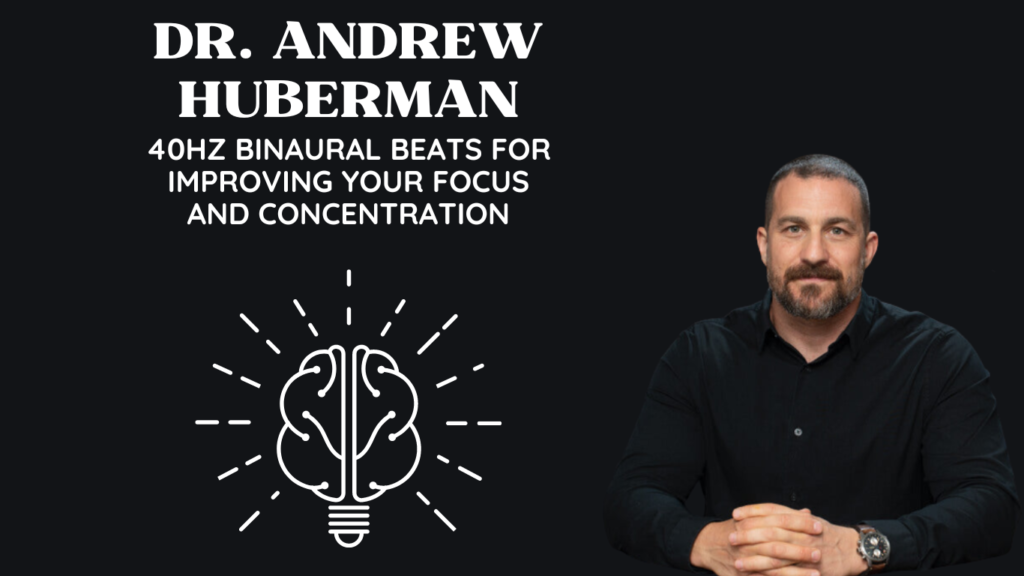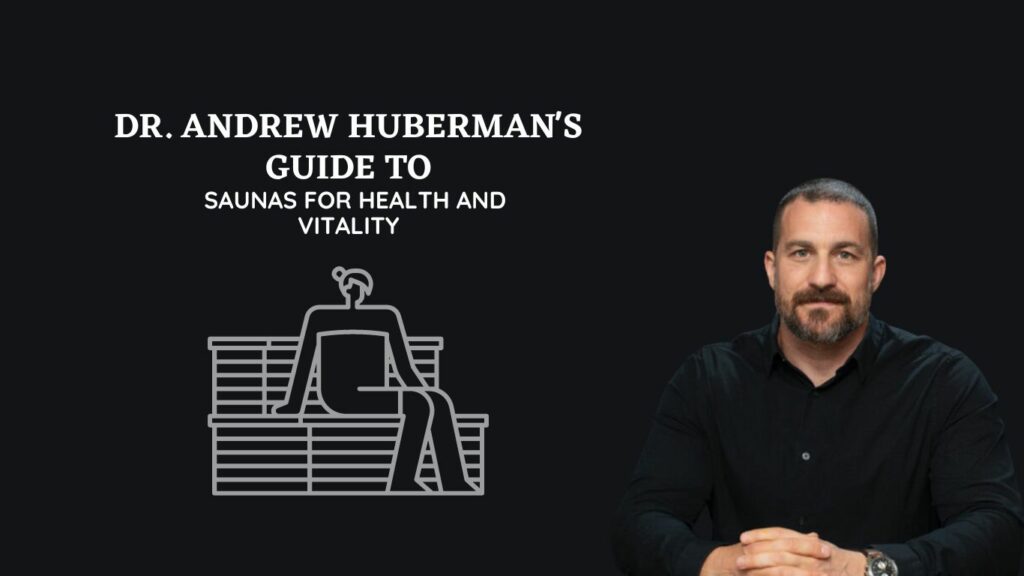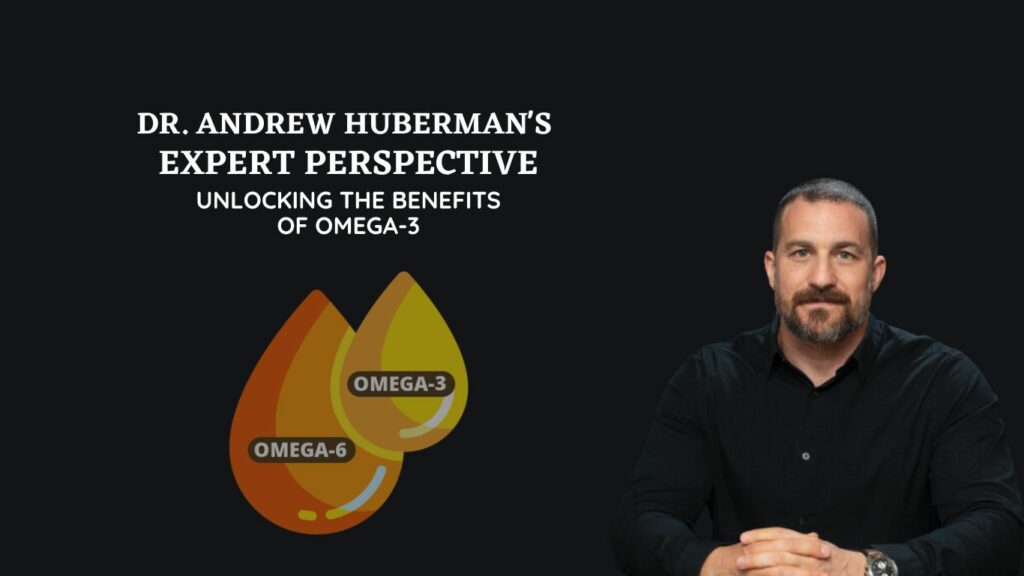Dr. Andrew Huberman hosts a highly regarded podcast in the realm of science and neuroscience. With over 100 episodes published on his YouTube channel, he has established a strong presence in the field. Notably, he has been invited as a guest on renowned podcasts such as Joe Rogan, Jordan Peterson, Lex Fridman, and others. In these engaging conversations, Dr. Huberman also shares valuable recommendations for evidence-based supplements that can enhance targeted areas of improvement.
Andrew Huberman's Science-Backed Supplement Recommendations
Below we will list all the supplements that Dr. Andrew Huberman uses or recommends for improving certain areas of your life that you’re lacking.
For each supplement listed below, we will provide a detailed paragraph with its benefits and potential side effects.
Note: All the supplements are scientifically proven by Dr. Huberman and his peers. These supplements are considered safe to use and have little to no side effects. If you are one of the few people that experience any side effects from any listed supplement, Dr. Huberman suggests that you stop taking it.
The main supplements that Dr. Andrew Huberman recommends and also uses himself are:
Sleep Cocktail
- Magnesium L-Threonate – 145mg or more
- Apigenin – 50mg
- Theanine – 100 to 400mg
- Glycine – 2000mg every 3rd or 4th night
- GABA – 100mg every 3rd or 4th night
- Myo-Inositol – 900mg every other night
Cognitive Function Supplements (Nootropics)
- Alpha-GPC – 300 to 600mg
- L-Tyrosine – 500mg
- Phenylethylamine (PEA) – 500mg
- Caffeine – 1-2 cups of coffee before 2PM
Additional supplements to maintain great cognitive function:
- Omega-3 Fatty Acids (EPA) – 1g of EPA per day
- Glutamine – 5g
- Creatine – 3-5g daily
Fitness & Bodybuilding Supplements
- Creatine – 3 to 5g
Testosterone Supplements
- Tongkat Ali – 400mg
- Fadogia Agrestis – 500mg
Stress & Anxiety Supplements
- Ashwagandha – 500mg
The complete list of supplements
The Benefits of Each Supplement
Sleep Supplements
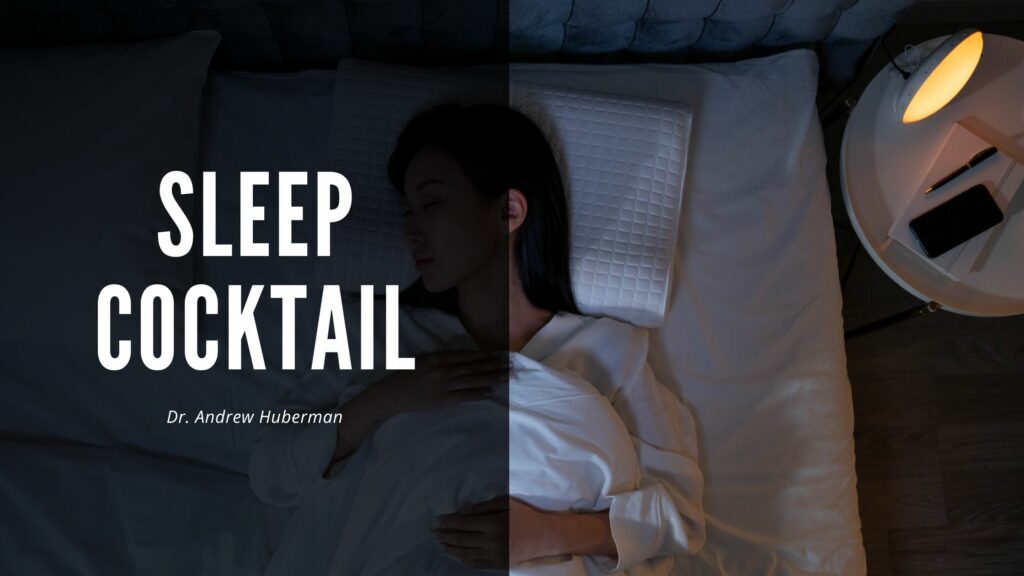
Dr. Huberman emphasizes the paramount importance of prioritizing and optimizing sleep. It serves as the foundational cornerstone that significantly impacts our overall well-being, encompassing mental health, physical health, cognitive performance, and multifaceted aspects of human performance.
The profound influence of quality sleep extends beyond these realms, extending its reach to the regulation of our immune system, expedited wound healing, maintenance of skin health, preservation of youthful appearance, retention of memory as we age, and even the potential extension of our lifespan. Therefore, investing conscious effort into enhancing and nurturing our sleep patterns is a vital endeavor that holds the key to unlocking our full potential in all areas of life.
Dr. Andrew Huberman recommends that you take the sleep stack 30 to 60 minutes before bedtime.
Magnesium L-Threonate
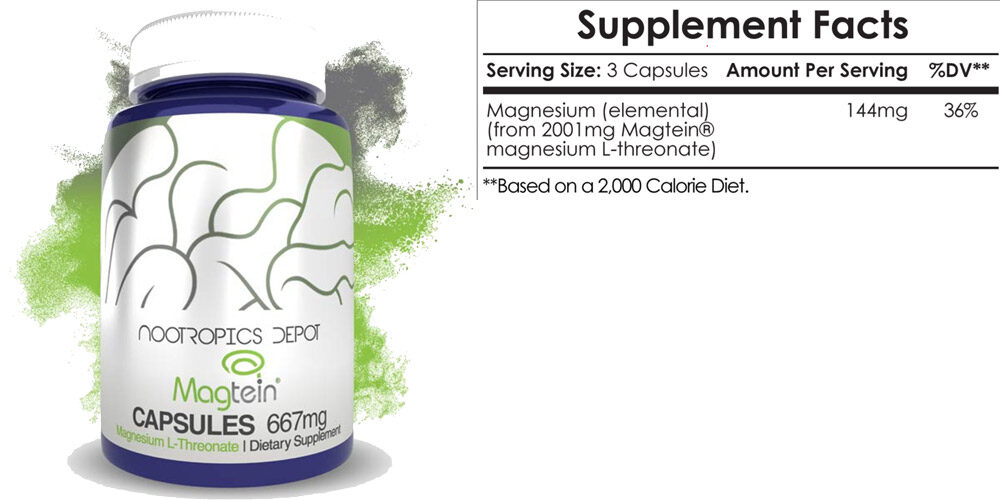
Dr. Andrew Huberman discusses the use of magnesium threonate as a supplement for improving sleep. Magnesium threonate is a specific form of magnesium that has been shown to have benefits for sleep and cognitive support.
Magnesium threonate is known for its ability to readily cross the blood-brain barrier, allowing it to exert its effects on the brain. It is believed to enhance sleep quality by promoting relaxation and drowsiness. By increasing magnesium levels in the brain, it may also support neuroprotection and cognitive function.
The dosage recommended by Dr. Huberman is 2000mg of magnesium threonate, which provides 145mg of elemental magnesium. It's important to note that the 145mg refers to the elemental magnesium content, which is the amount of magnesium that is actually available for the body to use. When considering magnesium supplements, it's typically the elemental magnesium content that is important for determining the appropriate dosage.
It's advisable to follow the recommended dosage instructions provided by the specific brand or manufacturer of the magnesium threonate supplement. If you have concerns about overdosing or want to ensure you are taking the appropriate amount, it's best to consult with a healthcare professional who can provide personalized advice based on your individual needs and health condition.
This form of Magnesium was discovered by scientists at MIT and during their experiments they found out that Magnesium L-Threonate was the only form of magnesium that was able to effectively go across the blood-brain barrier to raise the magnesium levels in the central nervous system, and this is what differentiates Magnesium L-Threonate from other forms of magnesium already on the market.
Since it is easily absorbed and able to enter the brain, studies have shown that Magnesium L-Threonate can help with:
- Reverse aging in our brains
- Sleep disorders and improve the quality of sleep
- Anxiety
- Cognitive dysfunction
- Attention disorders
- Parkinson’s disease
- Alzheimer’s disease
Apigenin
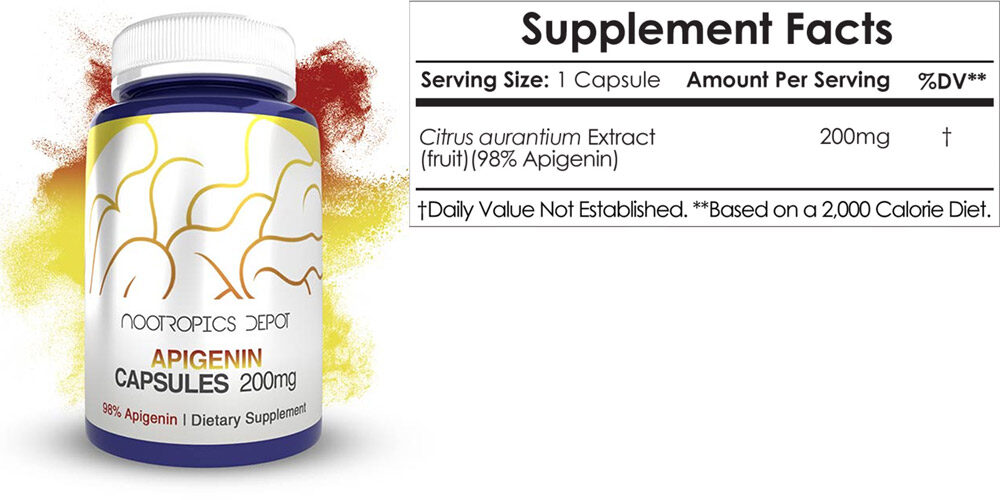
Apigenin is a natural compound that belongs to a class of flavonoids, which are plant-based compounds with antioxidant and anti-inflammatory properties. It is found in various plants, including chamomile, parsley, celery, and citrus fruits. Apigenin has gained attention for its potential benefits in promoting sleep and reducing anxiety.
According to Dr. Andrew Huberman, apigenin can act as an anxiety-lowering compound, which is crucial for promoting better sleep. By reducing anxiety levels, apigenin helps individuals calm their minds and decrease the amount of ruminating thoughts, problem-solving, and future anticipation that may interfere with falling asleep.
Apigenin has been studied for its sedative effects and potential as a sleep aid. It interacts with specific receptors in the brain, including GABA receptors, which are involved in promoting relaxation and sleep. By binding to these receptors, apigenin can enhance the effects of GABA, a neurotransmitter that inhibits brain activity and promotes sleep.
While apigenin shows promise as a sleep-enhancing supplement, it's important to note that individual responses to supplements can vary. Dr. Huberman suggests a rational and systematic approach to supplementation, where individuals can try different supplements or combinations to determine what works best for them. This may involve trying apigenin alone or in combination with other sleep-promoting supplements like magnesium threonate.
It's also worth mentioning that the effectiveness of apigenin or any supplement for improving sleep can be influenced by various factors such as an individual's overall health, lifestyle, and sleep habits. It's advisable to consult with a healthcare professional before starting any new supplement regimen, especially if you have underlying health conditions or are taking other medications.
Dr. Huberman suggests taking 50-200mg of apigenin before bedtime.
According to this study, apigenin benefits include:
- Insomnia
- Muscle relaxation
- Antioxidant
- Anti-inflammatory
- Anti-amyloidogenic
- Neuroprotection
- Cognition enhancing
- Treatment for Alzheimer’s disease
- Depression
Theanine
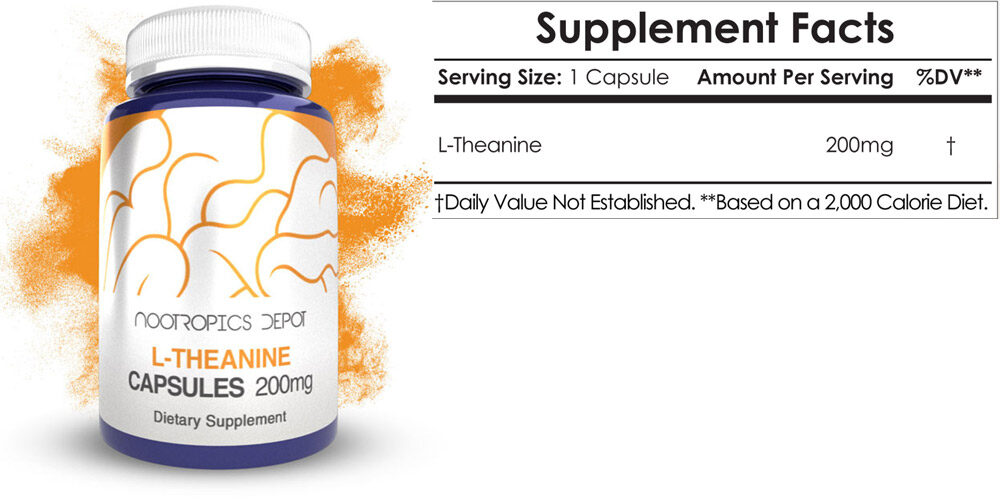
L-Theanine is an amino acid that naturally occurs in plant sources such as tea leaves and some mushrooms. It is easily absorbed by the small intestine, crossing the blood-brain barrier, and delivering protective barriers to the nerve cells. L-theanine also increases the brain’s production of dopamine, serotonin, and GABA. These are all neurotransmitters that play a role in regulating alertness, mood, emotion, sleep, concentration, and other brain functions.
Dr. Huberman suggests that theanine, when taken in dosages ranging from 100 to 400 milligrams, can assist in falling asleep more easily. It acts as an anxiety-lowering compound, helping to quiet the mind and reduce ruminating thoughts or excessive problem-solving, which are often barriers to falling asleep. By promoting a sense of calmness, theanine can contribute to the ease of transitioning into sleep.
However, Dr. Huberman also mentions that theanine may not be suitable for individuals who experience excessively vivid dreams that can lead to sudden waking and potential anxiety during the night. In such cases, it might be advisable to avoid theanine supplementation.
It's worth noting that theanine is generally considered safe and well-tolerated, with few reported side effects. It is not classified as a sleeping pill and does not induce drowsiness to the extent that it impairs motor skills or emergency response. Instead, it provides a mild form of relaxation that can aid in the sleep process.
Main benefits of L-theanine that research shows are:
- Reduce stress
- Calm the mind without causing drowsiness
- Support sleep
- Reduce mental fatigue
Glycine
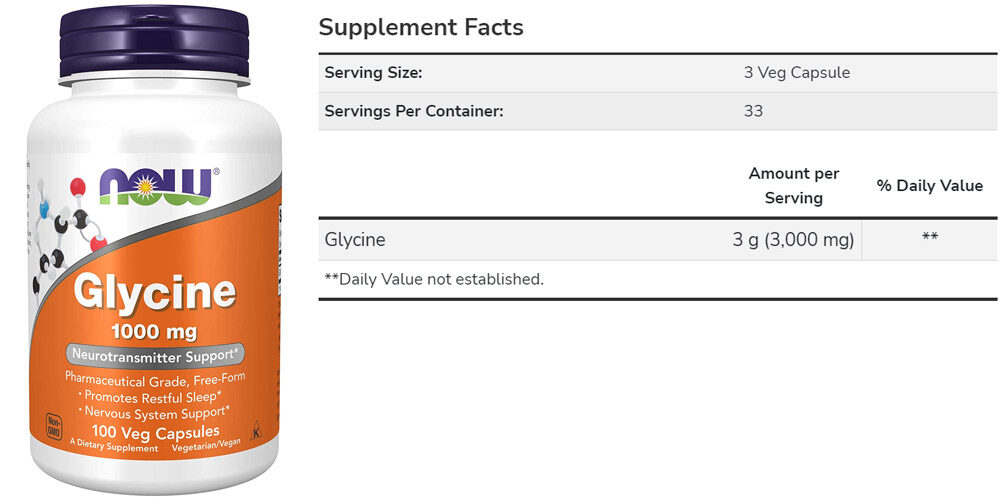
According to Dr. Andrew Huberman, glycine is a supplement that can be beneficial for optimizing sleep. He mentions glycine as one of the supplements that can help enhance sleep quality and address specific sleep issues.
Glycine is an amino acid that acts as an inhibitory neurotransmitter in the brain. It plays a crucial role in regulating the sleep-wake cycle and promoting relaxation. Glycine has been found to have sleep-enhancing properties, including improving sleep latency (the time it takes to fall asleep), sleep quality, and overall sleep architecture.
One of the key benefits of glycine supplementation is its ability to promote deep, restorative sleep. Deep sleep is important for various physiological processes, including memory consolidation, tissue repair, and hormone regulation. By enhancing deep sleep, glycine can contribute to improved cognitive function, physical recovery, and overall well-being.
Glycine may also help individuals who experience difficulty falling asleep or have a tendency to wake up during the night. It has been shown to reduce the time it takes to fall asleep and improve sleep continuity by reducing awakenings.
Additionally, glycine supplementation has been studied in the context of sleep disorders, such as insomnia. Research suggests that glycine can be an effective adjunctive treatment for insomnia, helping individuals fall asleep faster and experience better sleep quality.
The recommended dosage of glycine for sleep enhancement typically ranges from 3 to 5 grams taken before bedtime. It's important to note that individual responses to glycine may vary, and it's advisable to consult with a healthcare professional before starting any new supplement regimen.
Dr. Huberman highlights glycine as one of the supplements worth considering for those looking to optimize their sleep. However, it's essential to approach sleep improvement holistically and consider other factors such as light exposure, temperature, exercise, and overall sleep hygiene in conjunction with supplement use.
Dr. Huberman doesn’t recommend taking glycine every night, but every 3rd or 4th night. The reason for this is that his sleep stack doesn’t work well when he takes glycine, GABA, and myo-inositol every night.
Glycine is also an amino acid that is usually produced in the body in sufficient amounts, but in certain contexts, more glycine is needed from the diet or supplementation. Common sources of glycine are eggs, meat, soybean, and dairy products.
Some studies have shown that glycine can improve sleep quality, cognitive function, and joint health.
GABA
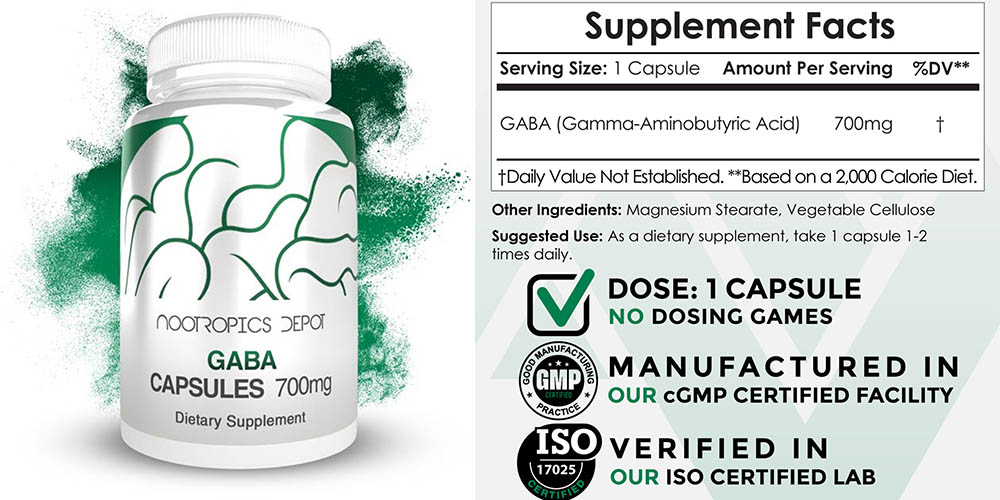
GABA is a neurotransmitter that is important for relaxation and regulates many sedative and depressive actions.
The main benefits of GABA are the calming and sedative effects and a few studies have found that it improves sleep quality and reduces anxiety.
Dr. Andrew Huberman mentions GABA (gamma-aminobutyric acid) as one of the supplements that he takes every third or fourth night to enhance his ability to fall asleep. He states that he takes 100 milligrams of GABA in addition to his standard sleep stack, which includes magnesium threonate, apigenin, and theanine.
Dr. Huberman believes that the combination of two grams of glycine and GABA greatly enhances his sleep. GABA is an inhibitory neurotransmitter in the brain that helps promote relaxation and reduce anxiety. By taking GABA as a supplement, Dr. Huberman aims to improve his sleep quality and facilitate the process of falling asleep.
Myo-Inositol
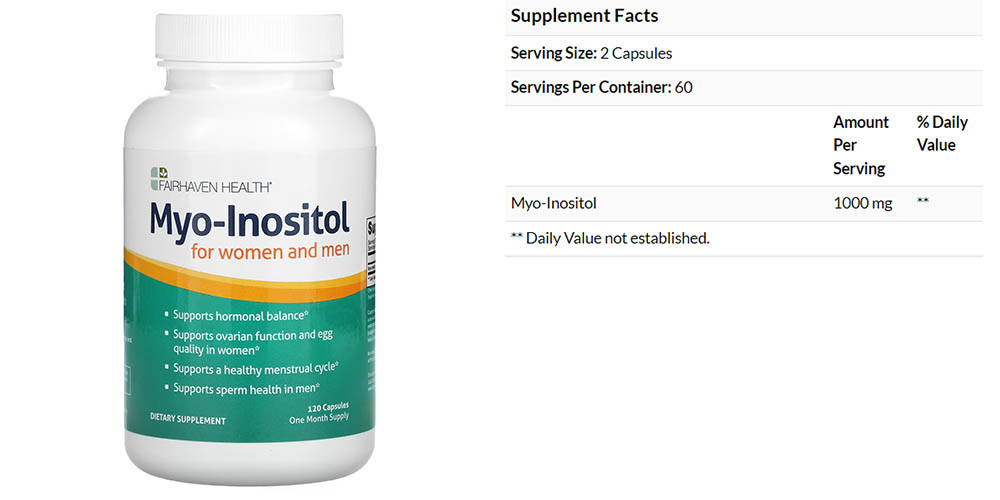
Myo-inositol is a naturally occurring compound that belongs to the B-vitamin family. It plays a crucial role in various physiological processes in the body, including cell signaling, insulin signaling, and neurotransmitter regulation. It has been studied for its potential effects on mood, anxiety, and sleep.
According to Dr. Huberman, taking 900 milligrams of myo-inositol may help shorten the time it takes to fall back asleep if you wake up in the middle of the night. It is important to note that individual responses to supplements may vary, and it is always recommended to consult with a healthcare professional before starting any new supplement regimen.
In addition to its potential sleep benefits, myo-inositol has been investigated for its impact on mood disorders such as depression and anxiety. Some studies have shown promising results in improving symptoms of these conditions, although more research is needed to establish its effectiveness.
Dr. Huberman recommends visiting the website examine.com for more information on myo-inositol and its various effects studied in scientific literature. Examine.com provides a comprehensive resource that examines the evidence behind different supplement compounds, including myo-inositol, and their impact on hormone, brain, and body health.
It's worth mentioning that while myo-inositol may be helpful for some individuals, it may not work for everyone. Each person's sleep patterns and underlying causes of sleep issues can vary, so it's essential to explore different strategies and consult with a healthcare professional to determine the best approach for improving sleep quality.
Dr. Huberman has recently started using myo-inositol and the dosage he takes is 900mg. What he has found out is that Myo-inositol in combination with his sleep stack helps him fall asleep much quicker and also when he wakes up in the middle of the night to use the bathroom, he falls asleep easily again. Whereas on the nights that he doesn’t take myo-inositol he finds it is a bit of a challenge to fall back asleep after waking up.
He also explains that myo-inositol makes him feel calmer throughout the day and feel more resilient against stressful events.
Nootropics – Cognitive Enhancement Supplements
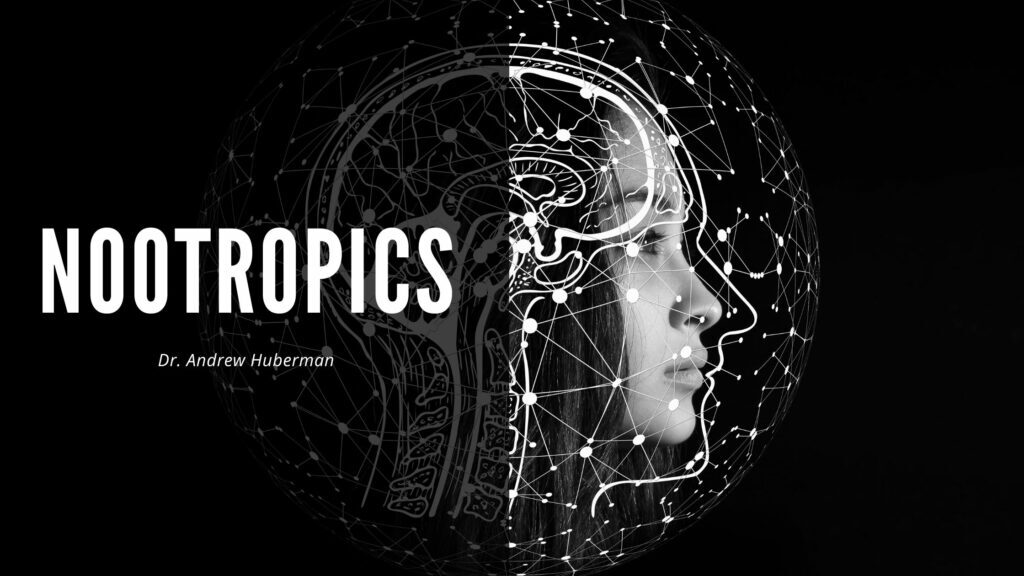
Alpha-GPC
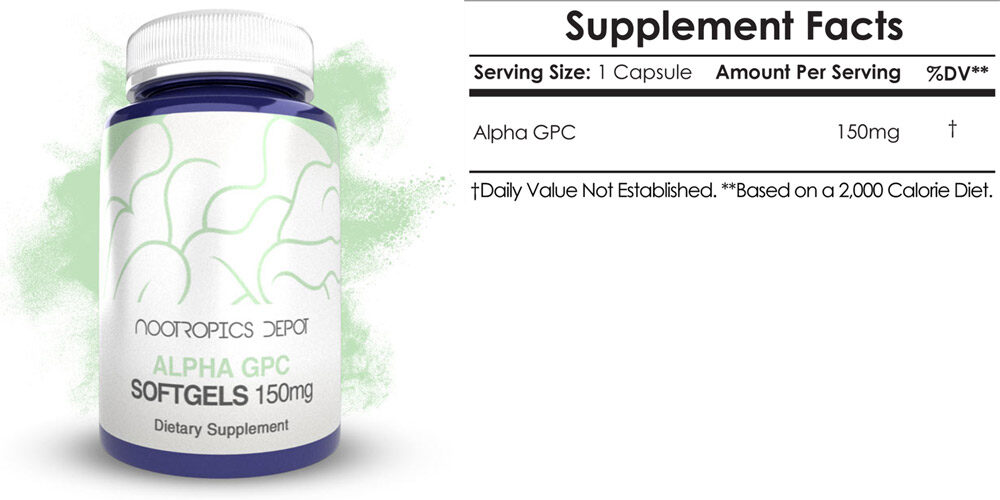
Alpha-GPC is a choline containing phospholipid. Choline is a precursor of acetylcholine, which is a neurotransmitter involved in attention, memory and muscle contraction. What differentiates Alpha-GPC from other supplements in this category is that it is rapidly absorbed and can easily cross the blood-brain barrier.
Alpha-GPC is generally considered safe, and serious side effects have not been reported in human trials.
Dr. Huberman mentions Alpha-GPC as a supplement that can enhance focus. He explains that Alpha-GPC is a choline donor that acts in pathways related to the neuromodulator acetylcholine. When taken at dosages of 300 to 600 milligrams, it can heighten levels of focus for mental or physical work. Alpha-GPC is not a stimulant like caffeine but works by augmenting acetylcholine pathways. It does create a slight increase in alertness, but it doesn't make people feel jittery or overstimulated like caffeine. The half-life of Alpha-GPC is about four to six hours, so it has relatively short-lasting effects. Dr. Huberman recommends avoiding taking Alpha-GPC right before bed.
Here’s what Dr. Andrew Huberman has to say about Alpha-GPC:
“Alpha-GPC consumed at dosages of 300 milligrams to 600 milligrams prior to a work about or prior to a workout greatly increase one's ability to focus and concentrate, at least that's been my experience, and there are some good data in humans.
So how would I use Alpha-GPC?
I would use Alpha-GPC by taking it about 10 to 20 minutes prior to any time I want to focus or concentrate very deeply. I've taken as much as 600mg at one time, although I find that 300mg is enough for me, and I tend to be quite sensitive to supplements and caffeine in general, so I'll sometimes take it alongside yerba mate or with yerba mate or with coffee prior to a workout or prior to a about of work in which I'm focusing on mental work.
So, it could be reading, writing, could be math, could be data analysis, could be anything where I need a lot of focus and concentration.”
L-Tyrosine
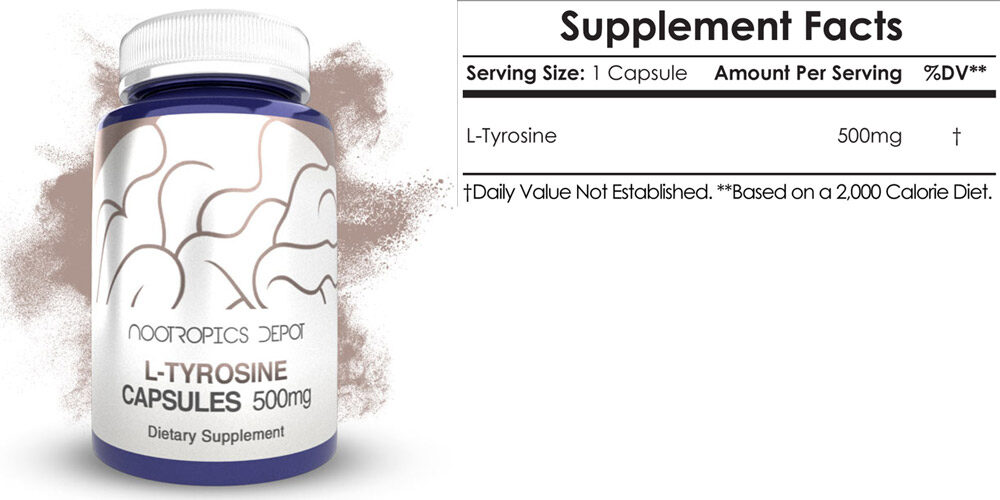
L-Tyrosine is also an amino acid that is metabolized by the body to produce dopamine and norepinephrine and is also used in the production of thyroid hormones. It is usually taken as a supplement to increase dopamine and norepinephrine during stressful or challenging conditions.
Multiple studies have shown that L-tyrosine can help prevent declined cognitive function under stressful, cognitive demanding conditions. It has also been shown to improve the memory under those same conditions.
L-tyrosine is safe and well-tolerated according to studies with human trials.
Here’s what Dr. Huberman says about L-tyrosine:
“If one wants to increase the amount of dopamine transmission in the brain and body for sake of increasing concentration and focus, one of the most efficient ways to do that is by ingestion of the amino acid L-tyrosine. I will take 500 milligrams of L-tyrosine, 300 milligrams of Alpha-GPC and a cup of coffee.
I'm careful to do this early in the day, certainly not after two or 3:00 PM because I don't want to diminish my ability to fall and stay asleep that night.”
Dr. Andrew Huberman
Phenylethylamine (PEA)
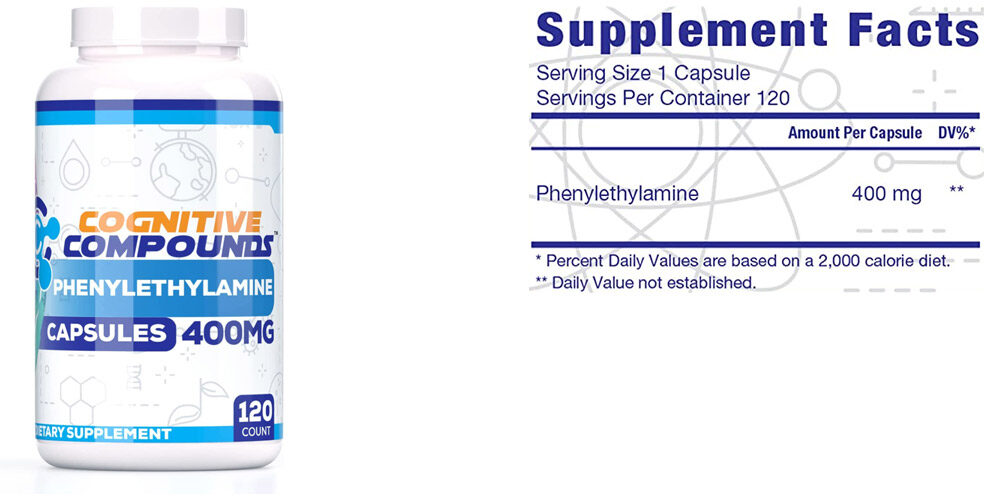
Phenylethylamine or PEA is a supplement that increases the ‘happy hormones’ like dopamine and serotonin. Our brains make PEA from the amino acid phenylalanine. PEA is mostly found in foods high in protein.
Here’s what Dr. Huberman says about PEA:
“Phenylethylamine is in the dopamine synthesis pathway, so it increases dopamine transmission and tends to function a little bit differently than L-tyrosine.
So every once in a while, I'll swap out L-tyrosine and put in 500 milligrams of phenylethylamine or sometimes, if I really want to push a little bit harder on the dopamine system, and I'm going to be doing a long about of intense work, I will take the 300 milligrams of Alpha-GPC, the 500 milligrams of L-tyrosine, I'll generally take that with some caffeine, and I should mention, I don't go past about 100 or 200 milligrams of caffeine cause I don't really like feeling too jittery, that's not really my goal, it's the goal to be alert, but not so alert that I really can't focus on anything, I'm not interested in having an anxiety attack after all, but I'll sometimes either swap in or I will add that 500 milligrams of phenylethylamine.
Phenylethylamine is in the PEA pathway. I've talked about this in a previous podcast on dopamine motivation and drive, and it's a very short-lived compound. So, what I'll tend to do is take it once at the beginning of the workout and sometimes in the middle of the workout, I'll take another 500-milligram capsule.
But what I just described with combining all of those compounds, Alpha-GPC, L-tyrosine, phenylethylamine and caffeine, that's a fairly rare occurrence that I'll combine all four and really only under conditions in which I have to do an intensely challenging about of mental or physical work.”
Dr. Huberman
Omega-3 Fatty Acids
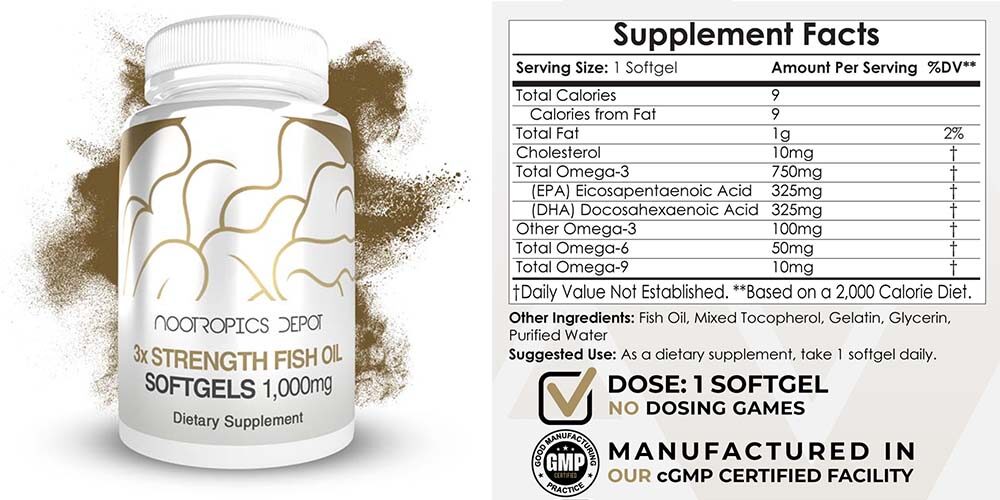
Dr. Andrew Huberman in the Huberman Lab Podcast episode titled “Developing a Rational Approach to Supplementation for Health & Performance,” he discusses the importance of omega-3 fatty acids as a foundational supplement for overall health and performance.
Omega-3 fatty acids are a type of polyunsaturated fat that are essential for the body and must be obtained from the diet or supplements because the body cannot produce them on its own. There are three main types of omega-3 fatty acids: alpha-linolenic acid (ALA), eicosapentaenoic acid (EPA), and docosahexaenoic acid (DHA).
Dr. Huberman explains that omega-3 fatty acids play a crucial role in various aspects of health, including cognitive function, mood regulation, cardiovascular health, and inflammation management. They are particularly important for brain health and development, as DHA is a major component of brain tissue.
He highlights the benefits of omega-3 supplementation for mental and physical performance. Omega-3 fatty acids have been shown to support cognitive function, including memory, attention, and learning. They also have anti-inflammatory properties that can help reduce inflammation in the body, which is important for overall health and recovery from physical exercise.
Dr. Huberman suggests that individuals can obtain omega-3 fatty acids from dietary sources such as fatty fish (e.g., salmon, mackerel, sardines), walnuts, flaxseeds, and chia seeds. However, he acknowledges that some people may not consume enough of these foods regularly or may have dietary restrictions that limit their intake of omega-3-rich foods. In such cases, omega-3 supplementation can be a practical and effective solution. It's worth noting that when choosing an omega-3 supplement, it's important to consider the quality and purity of the product. Look for supplements that have been third-party tested for contaminants and meet quality standards.
Glutamine
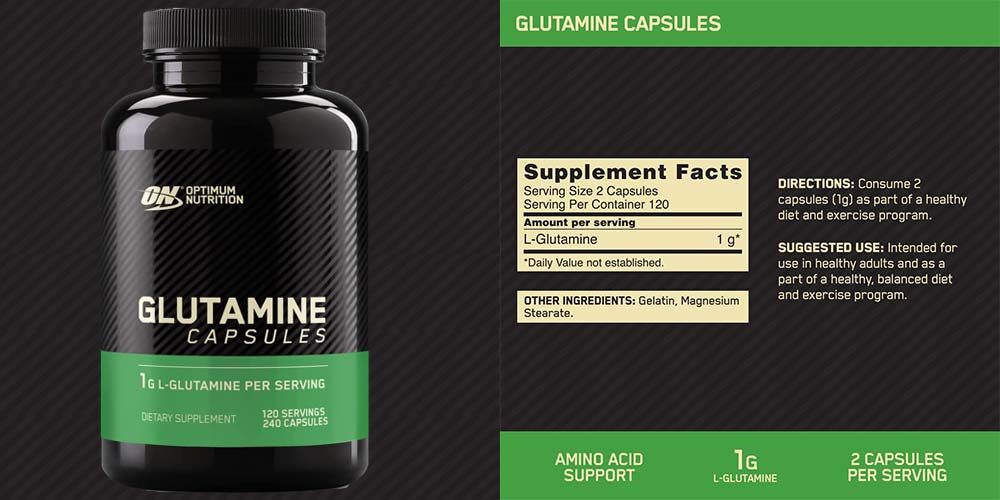
Glutamine is an amino acid that plays a significant role in brain function and overall cognitive health. It is involved in various processes, including neurotransmitter synthesis, energy production, and maintaining the integrity of the gut-brain axis. Glutamine can be obtained from both dietary sources and as a dietary supplement.
According to Dr. Huberman, one important aspect of glutamine is its impact on cognitive function. Glutamine supplementation has been shown to have cognitive-enhancing effects, particularly in situations where cognitive performance is challenged, such as at high altitudes or during oxygen deprivation. Studies have suggested that glutamine can help offset some of the negative effects on cognition caused by these conditions.
Furthermore, glutamine has been found to have a role in satiation and the regulation of food cravings. There are glutamine-sensing neurons in the gut that respond to glutamine and send signals to the brain, signaling satiation and satisfaction. This can help offset sugar cravings and contribute to healthier food choices.
Glutamine is naturally present in protein-rich foods such as beef, chicken, fish, dairy products, eggs, and certain vegetables like beans, cabbage, spinach, and parsley. These dietary sources provide an adequate amount of glutamine for most individuals. However, some people choose to supplement with glutamine, typically taking doses ranging from 1 gram to 10 grams per day.
It is worth noting that while glutamine supplementation has shown potential benefits for cognitive function and immune system function, the evidence is somewhat limited and further research is needed to fully understand its effects and optimal usage. As with any dietary supplement, it is advisable to consult with a healthcare professional before starting glutamine supplementation to determine if it is suitable for individual needs and health conditions.
Fitness and Bodybuilding Supplements

Creatine
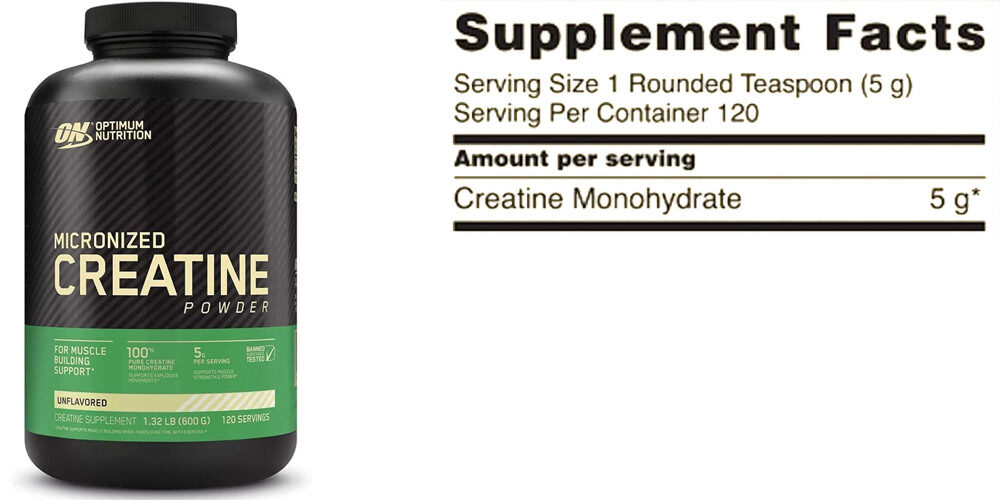
Creatine is one of the most well-researched and effective supplements that exist. It is most known for physical performance among athletes and bodybuilders for producing energy during intense activity, but recently it has been shown that creatine may provide cognitive benefits too.
Creatine is a molecule produced in the body from amino acids, primarily made in the liver. It regenerates ATP, the primary energy carrier in the body that is important under conditions of high energy demand such as intense physical or mental activity.
Creatine is mostly found in meat and fish, but athletes commonly take it as a powder.
Dr. Huberman takes 5 grams of creatine a day, and he says that aside from the benefits of physical performance, creatine helps improve his cognitive performance too.
Here’s what he says about creatine:
“The other thing that can positively modulate brain function and that actually works as a fuel for neurons to function and can improve cognitive performance, and particularly within the brain circuits, such as the prefrontal cortex, that are involved in concentration and focus is creatine.
I know many people are familiar with creatine monohydrate for its effects on muscle growth and strength and performance, but it's quite clear that the bulk of scientific studies have examined the role of creatine in the clinical context and as its role in improving cognitive performance. So, my read of the literature has led to a practice in which I ingest 5 grams per day of creatine monohydrate, the sort of standard form that's available in, this is generally available as a powder, that's certainly how I take it.”
Dr. Andrew Huberman
Testosterone Supplements
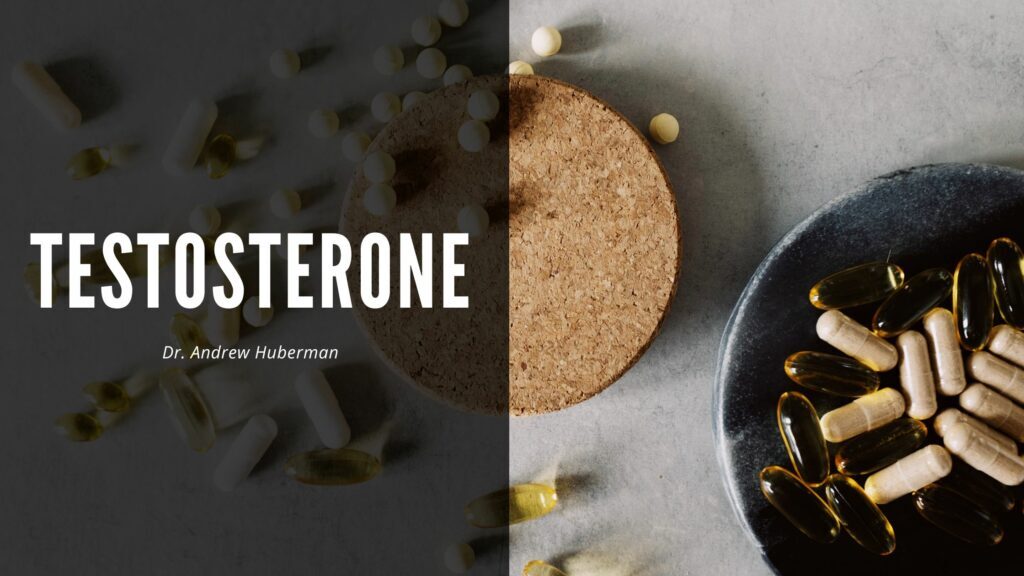
Tongkat Ali
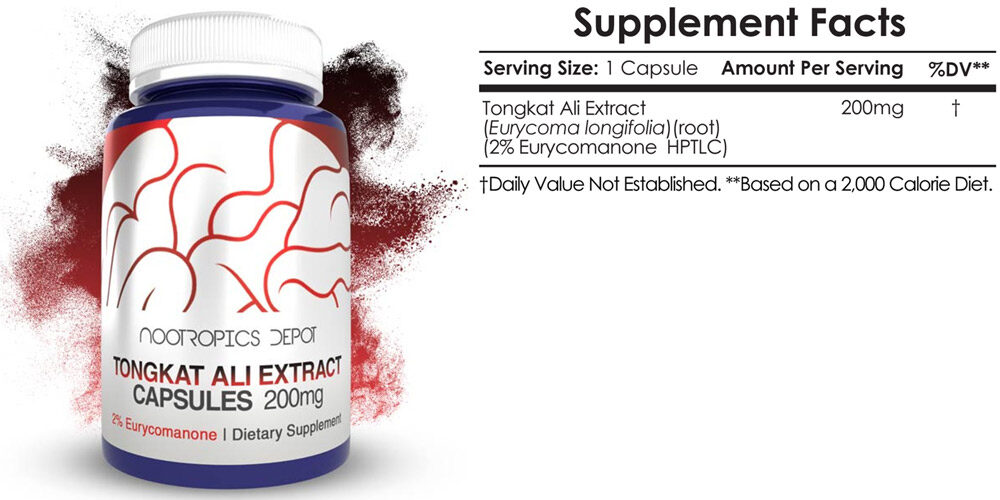
Eurycoma Longifolia Jack, aka Tongkat Ali, is a flowering plant that can be found in the South East Asian region. In these regions, it is believed that consuming Tongkat Ali, would provide an array of health benefits and for centuries people in these regions mostly have used Tongkat Ali for increasing testosterone, strength, and energy.
Tongkat Ali got its attention because Dr. Andrew Huberman mentioned it first in the Joe Rogan podcast. Here’s what he says about Tongkat Ali:
“Tongkat Ali, about 400 milligrams per day has the effect of raising free testosterone and overall testosterone by about 100 to 200 points.
This has been shown in several studies, and you can find these on examine.com, or you can go to PubMed if you like, I've looked at these, that it does seem to have some pro-fertility, pro-free testosterone, and subtle aphrodisiac effects, it does also seem to be a slight anti-estrogen, so the reports of this are, people take this anywhere from 400 to 800 milligrams a day, again, I'm not suggesting you do that, but that's kind of what's out there, and there is some decent scientific literature to support the fact that it liberates some of the bound testosterone and allows more free testosterone to be available, some of the reported quote-unquote side effects are things like excessive alertness and insomnia if it's taken too late in the day and so forth, but I encourage you to explore that further if that's, if increasing free testosterone is something that you're interested in doing.”
Dr. Andrew Huberman
Fadogia Agrestis
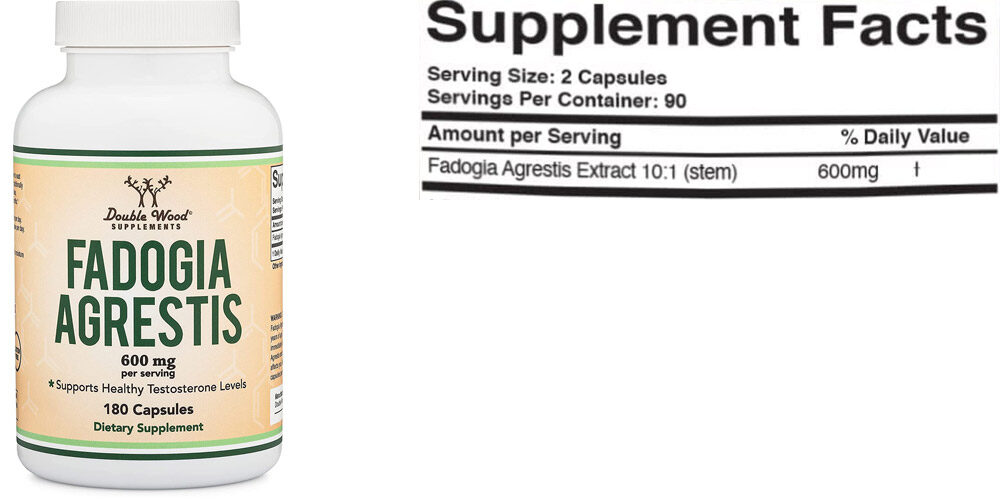
Fadogia Agrestis is a short bush plant native to Nigeria, traditionally used as an aphrodisiac and to treat ED. Recent studies (on rodents) have found that Fadogia Agrestis boosts testosterone and acts as a libido enhancer.
Dr. Huberman states that Fadogia Agrestis can increase testosterone by 300 to 400 points. On the Joe Rogan podcast he says:
“Fadoga Agrestis is usually taken at about 600 milligrams and the most dramatic effect I’ve ever seen was somebody who had his testosterone down in the low twos and he got it up to the 700 range which is an outlier, but most people are going to see about a three to four hundred point increase.”
On his own podcast episode “The Science of How to Optimize Testosterone & Estrogen” he says:
“There are certain supplements, not many, that apparently can increase luteinizing hormone and thereby can increase testosterone and estrogen, and one of the more well-documented one is Fadogia agrestis, which, at least according to the literature that I was able to find, can increase levels of luteinizing hormone and thereby levels of testosterone or levels of estrogen, and again, if an individual were to take Fadogia agrestis, what they would probably find is that testosterone and estrogen would increase.
The side effect profile of Fadogia agrestis hasn't really been documented, so it's a little unclear, I just want to emphasize that anytime someone's going to start taking supplements, or modifying sex steroid hormones, getting blood work done is extremely important for safety reasons, and also just to know whether or not things are working,”
Stress & Anxiety Supplements
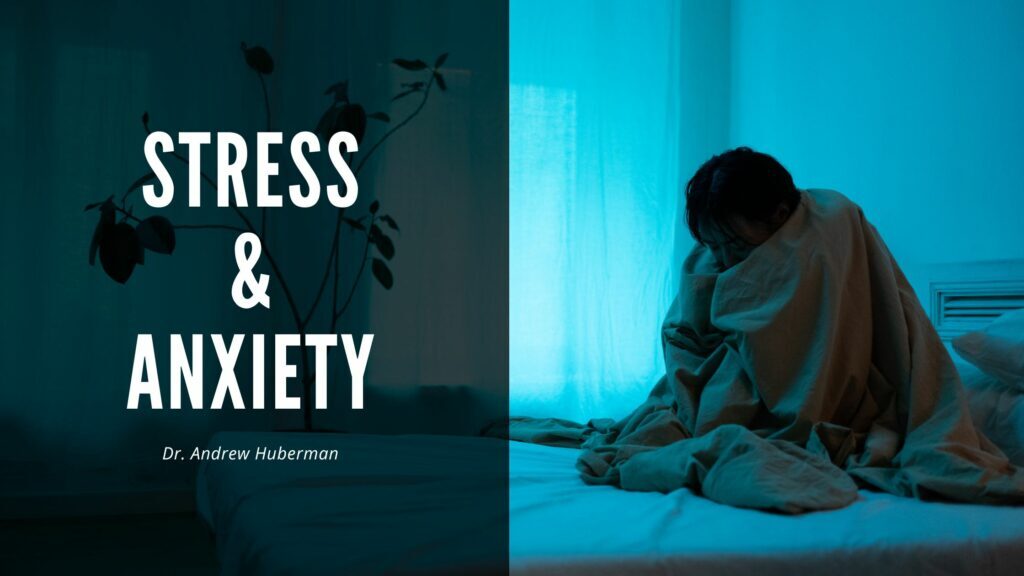
Ashwagandha
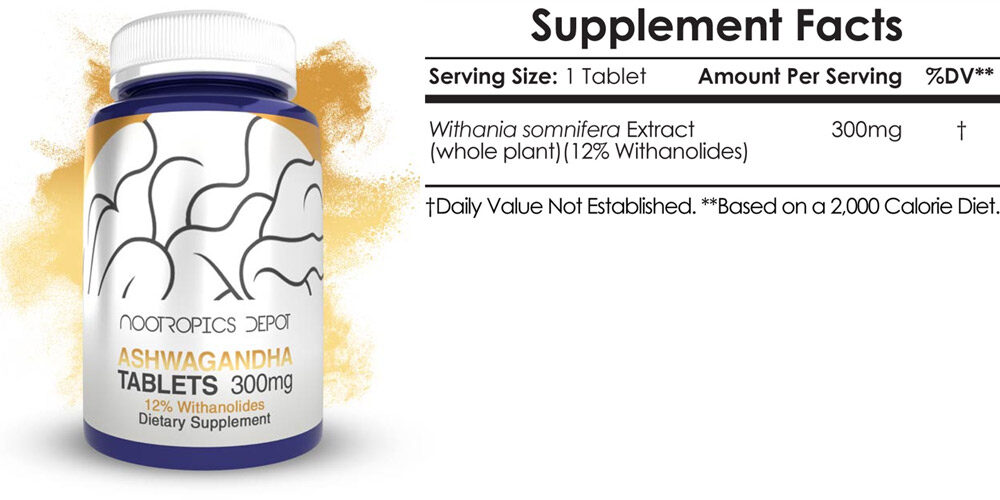
The king of Ayurvedic herbs, that’s what they call Ashwagandha. Also known as Indian ginseng, this is an herb that is used as traditional medicine in India. It’s best known for reducing stress and anxiety, but it can also enhance physical performance, increase testosterone and improve reproductive health.
Dr. Andrew Huberman mentions in the episode about Stress & Anxiety that he occasionally uses Ashwagandha during stressful periods. The dosage he recommends is 300 to 600mg per day.
Dr. Huberman says:
“Ashwagandha is known to lower anxiety and cortisol. There are six studies that collectively show reductions in cortisol, which is cortisol is typically associated with waking up in the morning, which is good. That's a healthy, brief cortisol bump that goes away provided you're getting your light at the right time of days at correct times of day, like morning and evening. But you don't want cortisol chronically elevated. That's associated with all the bad stuff about stress. There's a very strong effect of ashwagandha.”
Why You Should Take Supplements?
In today's world, characterized by the prevalence of junk food, highly processed meals, and genetically modified organisms (GMOs), it is no surprise that a significant number of people, particularly in the Western countries, suffer from a deficiency in essential nutrients. A study conducted by the World Health Organization in 2005 even revealed that our water supply lacks crucial minerals.
Consequently, to ensure our bodies and brains operate at their best, we must rely on supplements to fulfill our requirements for vital nutrients, vitamins, and minerals. These supplements serve as a means to compensate for the inadequacies caused by our modern food choices and the depletion of minerals in our water.
Who is Dr. Andrew Huberman?
When it comes to brain health and fitness, there are very few people more qualified to give advice than Dr. Andrew Huberman. A neuroscientist with a Ph.D. from Stanford University and a professor of neurobiology and ophthalmology at Stanford School of Medicine.
Huberman has dedicated his career to studying the human brain and how it can be used to improve our overall health and well-being. His research has led him to develop a line of supplements that he believes can help us achieve optimal health.
Dr. Andrew Huberman owns the biggest neuroscience podcast on YouTube named HubermanLab, where he discusses scientifically proven tips, tools and supplements to improve your everyday life.
While some may be skeptical of Huberman's claims, there is no denying that his credentials give him a great deal of credibility. His research has been featured in major publications like Men's Health and Women's Health, and he has even appeared on popular TV shows like The Dr. Oz Show. If you're looking for someone who knows what they're talking about when it comes to health and fitness, Andrew Huberman is definitely someone you should listen to.
If you want to know more about Dr. Huberman you can visit his website and if you want to watch or listen to his podcast you can find it on YouTube, Spotify, Apple Podcasts, Google Podcasts, and more.
Conclusion
The listed supplements are the ones that Dr. Andrew Huberman has used and recommended up until this point. We will keep this list updated, if there are any new additions that Dr. Huberman will recommend in the upcoming episodes, we will add it here with a note on when it was added.
Hope you find this article useful, and if you have any suggestions please don’t hesitate to comment below or contact us.
References
Examine.com is one of the best websites that lists all the studies and further reading for each supplement we’ve covered in this article.
Magnesium L-Threonate: https://examine.com/supplements/magnesium/research/#forms-of-magnesium-supplementation-1_yQZZbQO-l-threonate-1
Apigenin: https://examine.com/supplements/apigenin/
Theanine: https://examine.com/supplements/theanine/
Glycine: https://examine.com/supplements/glycine/
GABA: https://examine.com/summaries/study/dZZWDd/
Myo-Inositol: https://examine.com/supplements/inositol/
Alpha-GPC: https://examine.com/supplements/alpha-gpc/
L-Tyrosine: https://examine.com/supplements/l-tyrosine/
Phenylethylamine (PEA): https://examine.com/supplements/phenylethylamine/
Creatine: https://examine.com/supplements/creatine/
Tongkat Ali: https://examine.com/summaries/study/98kjp0/
Fadogia Agrestis: https://examine.com/supplements/fadogia-agrestis/
Ashwagandha: https://examine.com/summaries/study/dpnja0/
Important Note: The articles on our website are for informational purposes only. They are not meant to replace advice from a doctor or other healthcare professional. Everyone is different, so what works for one person may not work for you. We use affiliate links for some products and always aim to provide accurate, well-researched and up-to-date information.

